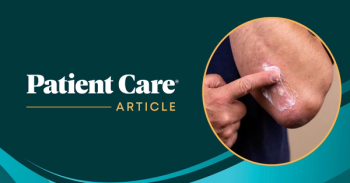
Psoriasis Therapy: What’s New
In recent years, the role of the immunesystem in the pathogenesis of psoriasishas been extensively delineated. Thisresearch has spawned a new classof medications that target specific immunefactors and hold great promiseas psoriasis therapies. The Table highlightsthe significant features of 4 ofthese biologic agents.
In recent years, the role of the immunesystem in the pathogenesis of psoriasishas been extensively delineated. Thisresearch has spawned a new classof medications that target specific immunefactors and hold great promiseas psoriasis therapies. The Table highlightsthe significant features of 4 ofthese biologic agents.Some of these agents have beenapproved by the FDA for other indications,such as rheumatoid arthritis,and are currently prescribed for psoriasisas an off-label use. Recently, alefaceptwas approved for treatment ofadult patients with moderate to severechronic plaque psoriasis who are candidatesfor systemic therapy or phototherapy.Other drugs in this class havenot yet been released for marketingbut are expected to be approved forthe treatment of psoriasis soon.
References:
REFERENCES:
1.
Weinberg JM, Saini R, Tutrone WD. Biologictherapy for psoriasis-the first wave: infliximab,etanercept, efalizumab, and alefacept.
J Drugs Dermatol
.2002;3:303-310.
2.
Chaudhari U, Romano P, Mulcahy LD, et al. Efficacyand safety of infliximab monotherapy for plaquetypepsoriasis: a randomised trial.
Lancet
. 2001;357:1842-1847.
3.
Alefacept [package insert]. Cambridge, Mass:Biogen Inc; 2003.
4.
Lebwohl M, Miller JL, Goldman M, et al. Continuedtreatment with subcutaneous efalizumab (anti-CD11a) improves outcome in patients with moderateto severe plaque psoriasis. Paper presented at:the 60th Annual Meeting of the American Academyof Dermatology; February 2002; New Orleans.
Newsletter
Enhance your clinical practice with the Patient Care newsletter, offering the latest evidence-based guidelines, diagnostic insights, and treatment strategies for primary care physicians.

































































































































